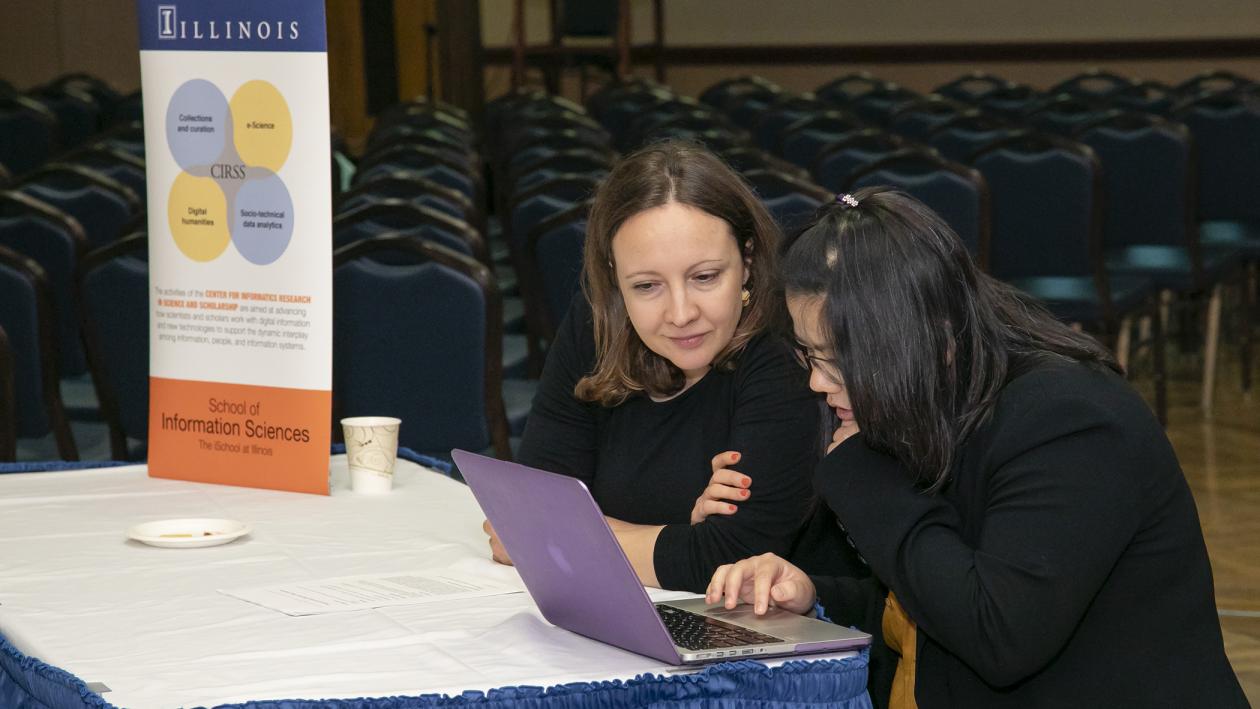Information Sciences + Data Science
The School of Information Sciences (iSchool) sponsors this major in collaboration with the Departments of Computer Science, Mathematics, and Statistics. The Information Sciences + Data Science Major is designed for students seeking to supplement their education by adding a strong background in data science. It prepares students for careers in a variety of industries, utilizing information and technology to make data-driven decisions.
Please note that the courses that appear higher on this list are recommended for those who are exploring the major.
- STAT/IS/CS 107: Data Science Discovery
- MATH 220/221/234: Calculus/Calculus 1/Business Calculus
- IS 101: Introduction to Information Sciences
- IS/INFO 202: Social Aspects of Information Technology
- IS 204: Research Design for Information Sciences
- IS 206: Introduction to Database Concepts and Applications
- MATH 227: Linear Algebra for Data Science (can substitute MATH 257)
- STAT 207: Data Science Exploration
- CS 277: Algorithms and Data Structures for Data Science (can substitute CS 225)
- IS 308: Race, Gender, and Information Technology
- IS 309: Computers and Culture
- IS/INFO 310: Computing in the Humanities
- IS 311: History and Foundations of the Information Society
Students should consult with an academic advisor regarding course selection prior to the advanced registration period.
Data analysis is increasingly a part of everyday life. The U.S. Bureau of Labor Statistics projects an increase of 36% in data science jobs from 2021 to 2031, driven by the demand for workers who can handle big data.
Because of this, students will be able to work in a variety of industries, which can include finance and insurance, information technology, and professional, scientific, and technical services. Many of our students become data consultants in a wide array of industries.
- Manage and analyze data
- Build and evaluate data-based models
- Create data visualizations
- Communicate and collaborate with others to make data-driven decisions
- Consider ethical and policy implications of data use and analysis
- Understand and manage issues of data reproducibility
- Apply data science skills and concepts in projects or research, and communicate and interpret results
- Data Analyst
- Data Scientist
- Data Analytics Consultant
- Database Administrator
- Technology Consultant
- Data Visualization Engineer
- Illinois Data Science Club
- Psi Eta Mu (Information Sciences Professional Fraternity)
- Illinois Business Consulting
There are several professional organizations dedicated to Information Science. Their websites might be able to provide a glimpse in the world of Information Science. These organizations include:
- iSchools - https://www.ischools.org/
- Association for Information Science and Technology (ASIS&T) - https://www.asist.org/
- Association for Computing Machinery - https://www.acm.org/
- Women in Data Science (WiDS) Worldwide Urbana-Champaign


